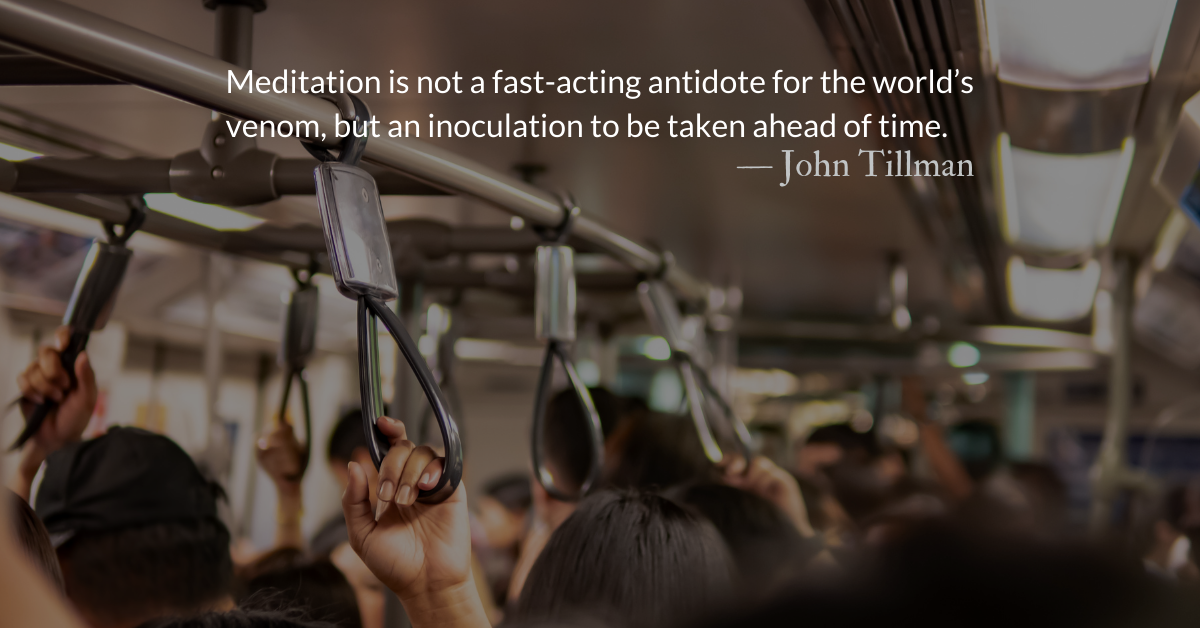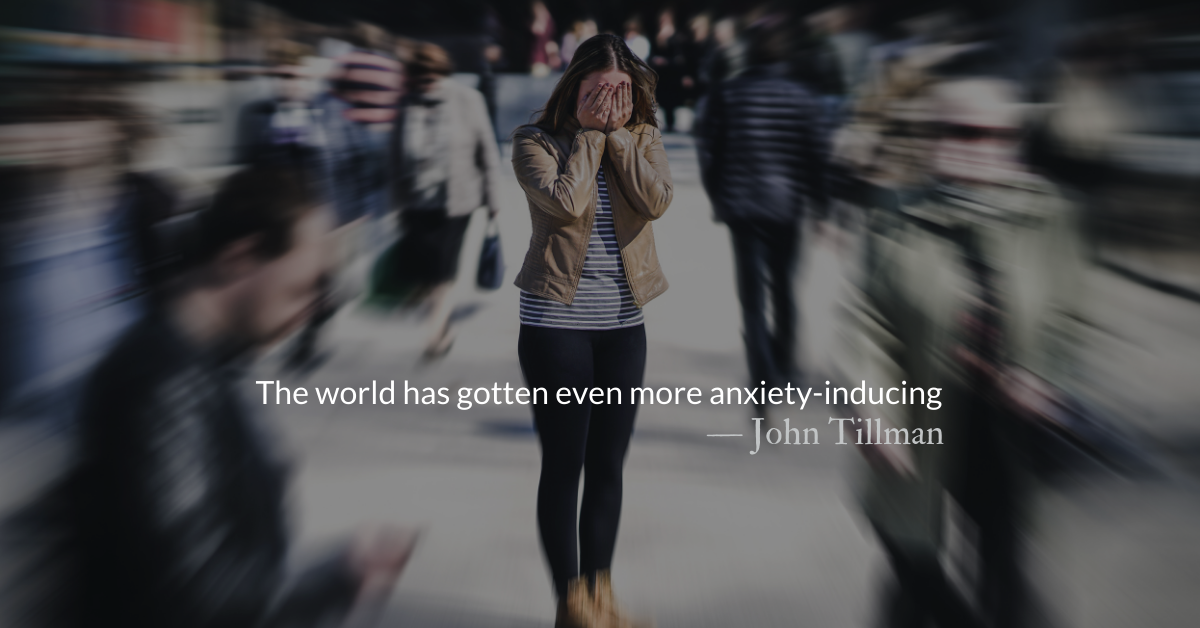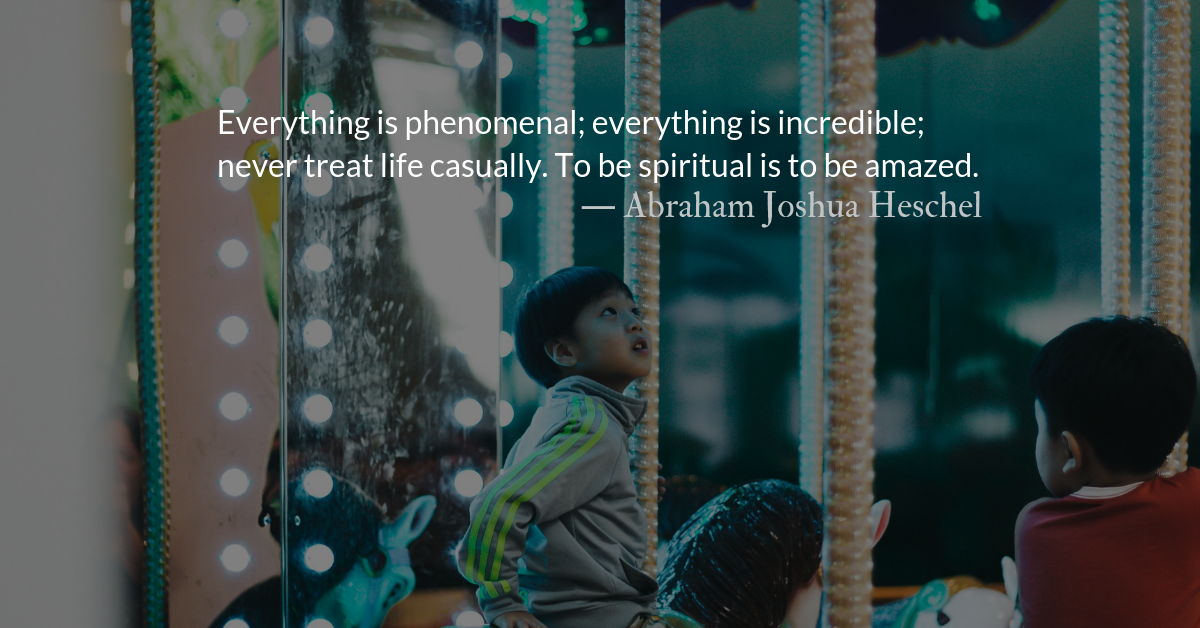Scripture Focus: Psalm 77.1-4
1 I cried out to God for help;
I cried out to God to hear me.
2 When I was in distress, I sought the Lord;
at night I stretched out untiring hands,
and I would not be comforted.
3 I remembered you, God, and I groaned;
I meditated, and my spirit grew faint. g
4 You kept my eyes from closing;
I was too troubled to speak.
From John: This rewritten post was first posted in 2018. Since then, suicide rates continue to rise in the United States among Christians and Christian ministers. With Covid and political strife crossing into church life, it hasn’t exactly gotten any easier for pastors in the past few years. Many have left the ministry under these pressures. For ministers and laypersons, Christian meditation and prayer is vital to surviving our world but Jesus and Paul would both testify that some problems can’t be “prayed away.” Seeing a counselor or doctor does not make one unfaithful. See the resources at the end of this post for help and more information.
Reflection: Discipline for the Anxious
By John Tillman
We live in distressing times. If there are corners of our world not touched by division, aggression, worry, and angst, you probably can’t get email there.
Anxiety, depression, and other mental health issues have long been on the rise—especially among younger adults. Depression used to be the leading mental health issue. It’s been overwhelmingly surpassed by diagnoses of anxiety. In 2020 and 2021, Covid and the distressing task of sorting through the disinformation and politicization of the deadly disease drove anxiety to new heights. According to the CDC, symptoms of anxiety and depression peaked in December 2020 and January 2021 but are still far above previous norms.
A Harvard study found that church attendance paired with spiritual disciplines such as meditation and prayer have a beneficial effect on mental health. In a Forbes article, study author Ying Chen noted that being raised religiously, “can powerfully affect [children’s] health behaviors, mental health, and overall happiness and well-being.”
The psalmists would not express surprise at these findings. Though we think of our society as facing pressures unknown to humanity until now, we would be mistaken to think of ancient times as idyllic and calm.
David and the other psalmists certainly knew what it was like to live under threat, under financial pressure, under the constant weight of political instability and the wavering loyalty of an unpredictable government.
Amidst such pressures, they had a safe haven. Their help for the stresses of life was meditation and prayer.*
The psalmist writes of being “too troubled to speak,” yet he cries to God. He writes of insomnia, yet he rests in God. He writes of doubts and of feeling that God has rejected him, that his love has vanished, that he had forgotten to be merciful. Yet in the midst of doubts and fears, he remembers God’s faithfulness in the past. He meditates on these memories in the heated moment of stress.
The benefits of meditation can help in a crisis but are no quick fix. Meditation is not a fast-acting antidote for the world’s venom, but an inoculation to be taken ahead of time.
When beginning (or returning to) meditative prayer, start small and short. Use the prayer provided at the end of this devotional (Psalm 119.147) as a start. Spend two to five minutes simply re-reading the prayer with an expectant heart, asking God to be with you.
*We are in no way implying that meditation should be pursued in lieu of proper medical treatment. If you are in need of counseling and professional services, please consider the following resources:
Mental Health Grace Alliance
Not A Day Promised Resource Page
Life Recovered (Resources for Ministers)
Suicide Prevention Lifeline
Action Alliance for Suicide Prevention
Suicide Prevention Resource Center
Divine Hours Prayer: The Call to Prayer
Search for the Lord and his strength; continually seek his face. — Psalm 105.4
Today’s Readings
Proverbs 13 (Listen – 2:45)
Psalm 77 (Listen – 2:12)
Read more about The Practice of Meditation :: Running
One way of thinking of meditative prayer is exercise to expand your spiritual lung capacity, allowing you to breathe in God’s spirit more naturally.
Read more about Breathing Prayers
The social, financial, and mental health costs of this sickness are pushing our culture to the end of the ability of the “human spirit” to endure.









